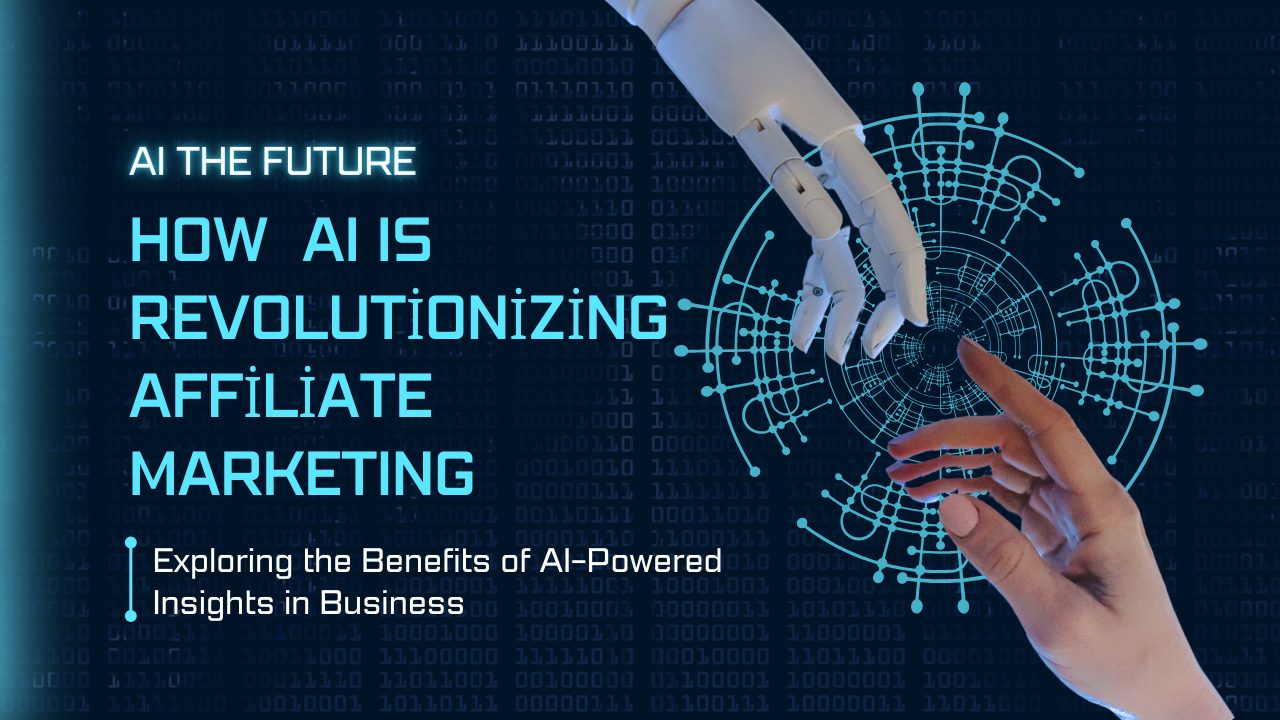I. Introduction
One of the most widespread marketing techniques, affiliate marketing works on the principle of a mutual benefit for both affiliates (publishers or marketers) and the companies they serve. In practical terms, the implementation of AI (Artificial Intelligence) techniques has, in the recent past, consisted in a substantial change of the previous one. AI is now utilized to ameliorate the targeting of advertising, to customize user trips, and make the campaigns as efficient as they can be.

II. Understanding AI in Affiliate Marketing
The word “AI” denotes the capability of computers to perform tasks that would otherwise require human intelligence. A programmed AI algorithm in affiliate marketing is a machine that watches more pieces of data, finds patterns, makes predictions and automates processes based on this information.

III. AI-Driven Personalization
Precision is the key here as AI is able to send personalized content that matches the needs and the wishes of the customers thus makes them involved in the process. As we know, the IA makes it possible to look at the users’ behavior, their preferences, and even their purchase history to give them the exact recommendations of the products they really want. What is more, when a customer chooses to surf a website, and the AI-powered recommendation engines approach him/her with products that are compatible with the browsing history, the website owner makes it easier for the client to get to the checkout.

IV. Improved Targeting and Segmentation
The AI technique of targeting and segmentation is the data analysis being done which is based on analytics about gender, interest, or behavior. Defining the audience group more accurately information how to create hyper-targeted campaigns that meet the individual preferences, thus, a positive result is an increase in conversion rates and income. By grasping who the customer is better, marketers can develop more suitable and engaging ads which will consequently bring about the betterment of marketing conversion rates and return on investments (ROI).

V. Enhanced Content Creation and Optimization
Financial tools that are developed by natural language processing (NLP) and machine learning mechanisms are effective in generating and optimizing the data. From writing product descriptions to crafting SEO-friendly blog posts, AI automates the tasks that are traditionally done by the human creativeness and skill, thus, it ensures content relevance and quality.

VI. Data Analysis and Insights
AI’s capacity to process and analyze large datasets provides the marketing department with the tools to pluck actionable insights that are necessary for planning the strategic way forward. AI-driven analytics tools that unearth trends, consumer behavior, and campaign performance sheathe allow for informed decision-making, which in turn leads to pace-setting marketing strategies at the real-time level.

VII. Automation of Routine Tasks
Routine work such as sending emails, posting on social media, and campaign optimization can be automated using AI. This automation does not only spare time but also adds effectiveness, enabling marketers to concentrate on developing strategy and creative ideas that are going to boost business.

VIII. Predictive Analytics and Trend Forecasting
The artificial intelligence technology’s predictive analytics skill gives the capability to marketers to forecast the future trends and consumer behaviors based on the past and current market conditions. Marketers may either anticipate the alterations in demand, align the strategies beforehand, and manage the inviting windfalls, and in this way they stand ahead in the competition markets.

IX. Fraud Detection and Prevention
In the case of affiliate marketing, fraudulent activity detection is vital for the continuity of the integrity of the system and advertiser and affiliate rights’ safeguarding. AI algorithms are effective in noticing the variations in the data and patterns that are indicators of fraudulent activities, such as click fraud and fake leads, which in turn helps to save campaign budgets and keep the trust inside the affiliate ecosystem.

X. Challenges and Ethical Considerations
AI technology is certainly of help to affiliate marketing, on the other hand, it creates issues including invasion of privacy, the implementation of the algorithm leads to bias decision results, and the requirement for AI professionals. Ethical considerations include the appropriate use of data, the fair treatment of consumers, and the compliance with the regulatory measures.

XI. The Future of AI in Affiliate Marketing
With new opportunities coming up in the future with the help of AI technology, we can see the emergence of more advanced and smarter predictive models, operational modules with newer and better UI, and AI-driven confidence in business will emerge from the combination of voice technologies and trading.

XII. Conclusion
Artificial intelligence (AI) forged a tectonic shift in marketing by simply so outbounded the possibilities for obtaining exponential gains, errand user communication and achieving business expansion, that are never possible up to now. One way of solving this issue is through the proper utilization of AI tools in conjunction with dealing with the ethical issues. The ability of marketing and advertising professionals to smoothly work with their business in the new digital environment will be the test that they will be passed through in the immediate and far down the road future.

